Backups vs. Antivirus: Have Both in One Tool
Quick Navigation:
3. Why Do You Need Both Backups and Antivirus?
4. Integrate Backups and Antivirus into One: Qiling Backup
Creating a backup has its benefits, but so does virus protection. Comparing the two is akin to securing your personal belongings. For example, if a burglar takes your prized possession, then a backup will surely come in handy. But, it would have been better if there had been security to stop the burglary.
The same could be said of data backups and antiviruses. If an antivirus can stop viruses from attacking your data, then there's seldom any need for backup. However, what happens if your data is damaged or lost in case of hardware failure?
That's when antiviruses can do nothing, and a backup made by a third-party tool like Qiling Backup can come in handy. So, let's dive in and analyze the merits of backups vs. antivirus.
What Does Backup Do?
A backup is copying data in case of hardware or virtual failure. Many people create backups to ensure the swift recovery of important data, including work files, personal photos, documents, etc. The primary causes of data failure can be as such data corruption, accidental deletion, hardware failure, software failure, or accidental rewrite/replacing of the files.
In such cases, data is lost unless you have a backup. That's why creating backups is imperative, as it can help you recover files easily. The primary job of a backup is to be a secondary element in case primary data is lost. The three main types of backup include full, differential, and incremental:
- Full: this includes the entire data set within a device, i.e., a computer
- Differential: This includes additions and changes to the primary, i.e., full backup
- Incremental: This means backing up only important data, i.e., information, photos, documents, etc.
Quick Answer: Is Virus Protection Necessary
While the security of websites and other platforms has increased exceedingly over the years, spam, malware, and other stuff of the sort still skip past security sometimes.
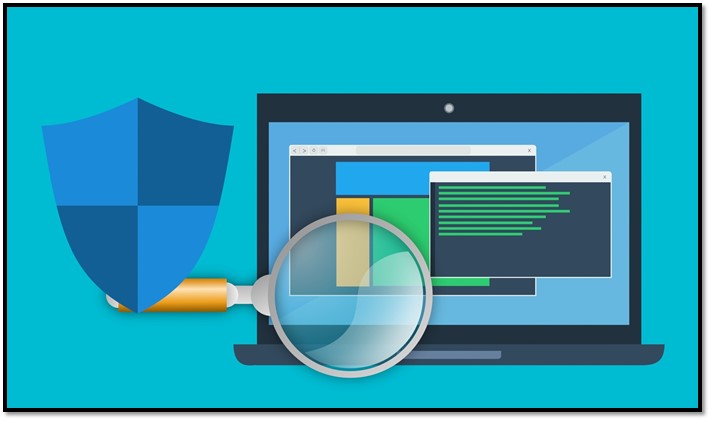
What Does Antivirus Do?
An antivirus program can help you secure your computer from malicious threats. These threats could be spyware or malware that might leak information or corrupt your data. The most common problems caused by viruses include slowed-down performance, corruption of important data, leak of personal information, etc.
These are there of the primary catastrophes that an antivirus program can protect your computer from. That's why some countries' governments recommend using an antivirus. The types of viruses that an antivirus can protect you from include:
- Hacking viruses such as browser hijackers, key loggers, Trojan horses, rootkits, spyware, or adware
- Malicious threats like file infecting viruses that corrupt .exe files
- Boot sector viruses that corrupt a hard disk drive or USBs. This type puts data at risk the most
The operation system designed security features to protect users' computers from malware. In Windows, you can find that the Windows Defender is a default open function to guard your system, including VBS, Model-based execution control (ensures optimal performance while VBS is running), Trusted platform module (TPM) encryption, Secure boot, Hypervisor-protected code integrity (HVCI), Windows Sandbox, and Kernel Data Protection (KDP).
There are many other types of viruses, but these are the most common culprits found in computers today. Furthermore, these are the kind that threatens your data the most. Apart from security features that will be on by default, Windows 11 need antivirus software to protect against data loss and other mishaps.
Why Do You Need Both Backups and Antivirus?
The thing to understand about backups vs. antivirus is that you cannot pick one out of them both. You need both, or you still risk your data. It's imperative to understand the importance of both, so let's talk about backups first:
1. Backups help you keep important files safe
2. Swift recovery in case of a virus attack
3. Even hardware failure won't cost you important data
Now that we know why backups are needed, let's talk about why antivirus is needed:
1. Keep your computer secure from malicious attacks and hacking tools such as key loggers, etc.
2. Avoid spyware or adware from leaking personal information
3. Avoiding malware or viruses that slow down computers & storage
As you can see, there's a pattern to understand here. Without antivirus, a backup is useless. Because until you get rid of the virus, extracting or restoring a backup will only cause your files to be lost again. On the other hand, if you only use antivirus, you risk your data being lost. Because even if antiviruses recover your computer, you don't have a backup to restore your data.
The bottom line is that the two complements each other, and one without the other is ineffective, and you need both to secure your vital data, your computer, and everything important in it.
Integrate Backups and Antivirus into One: Qiling Backup
Now that you know the importance of both, let us help you make your life easy by introducing you to one of the unique backup programs available today. It's called Qiling Backup. The ability of this program is even beyond the reach of viruses.
The one word you need to remember is Security Zone, a separate partition that keeps your data secured with password encryption. It encrypts backups so that no type of virus or person can access it until they speak the magic word, i.e., your password. Furthermore, you can create backups and clone images of your important partitions. That means you can recover an entire partition without the hassle of individual file recovery.
You can follow the steps below to create a security zone:
Step 1. Launch Qiling Backup on your computer, and click System Backup on the home screen.
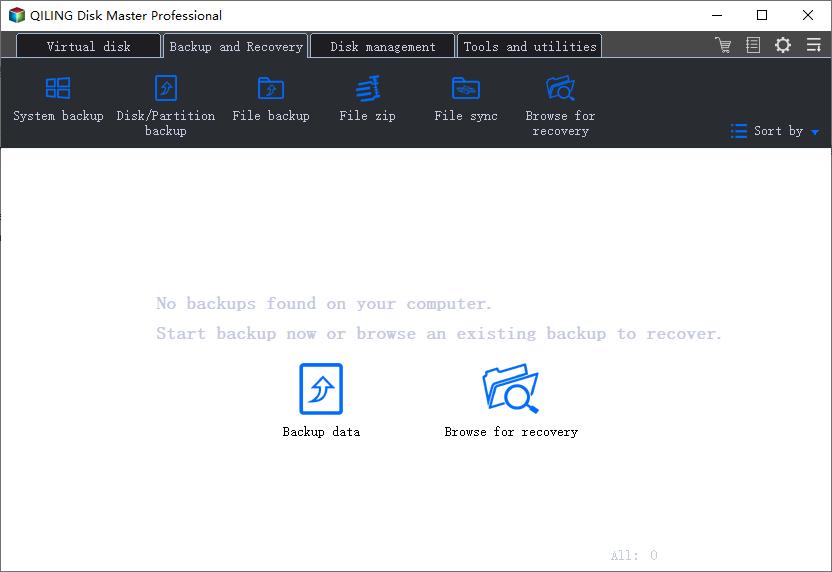
Step 2. Your Windows operating system information and all system related files and partitions will be automatically selected so you don't need to do any manual selection at this step. Next, you'll need to choose a location to save the system image backup by clicking the illustrated area.
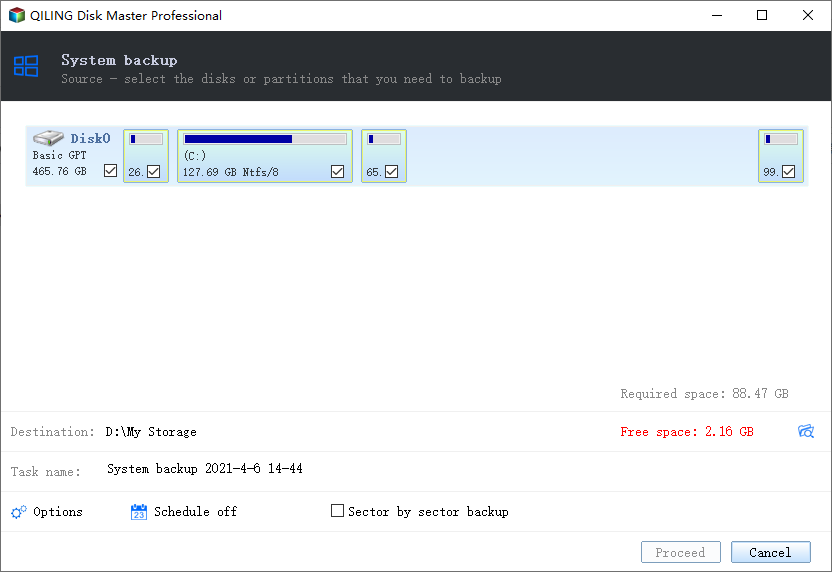
Step 3. The backup location can be another local drive on your computer, an external hard drive, network, cloud or NAS. Generally, we recommend you use an external physical drive or cloud to preserve the system backup files.
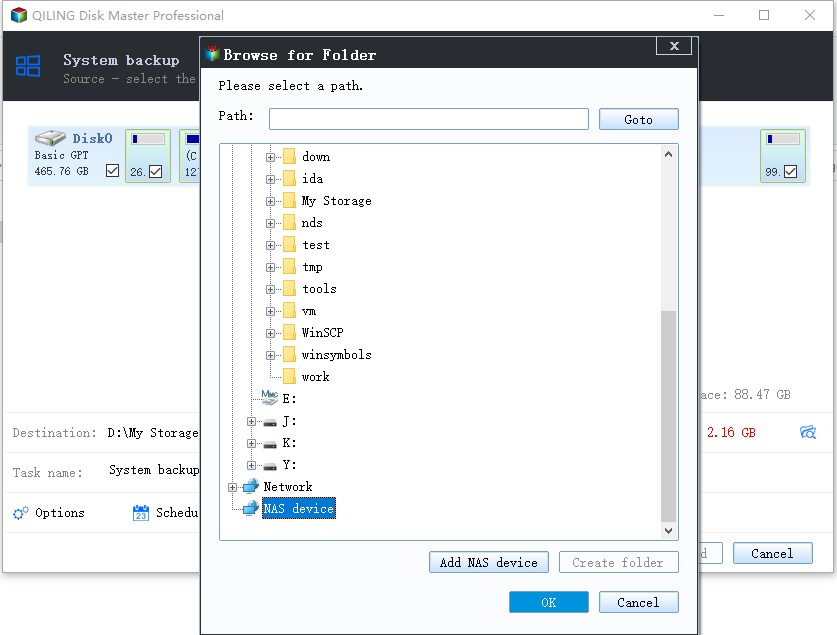
Step 4. Customiztion settings like enabling an automatic backup schedule in daily, weekly, monthly, or upon an event, and making a differential and incremental backup are available in the Options button if you're interested. Click "Proceed", and the Windows system backup process will begin. The completed backup task will display on the left side in a card style.
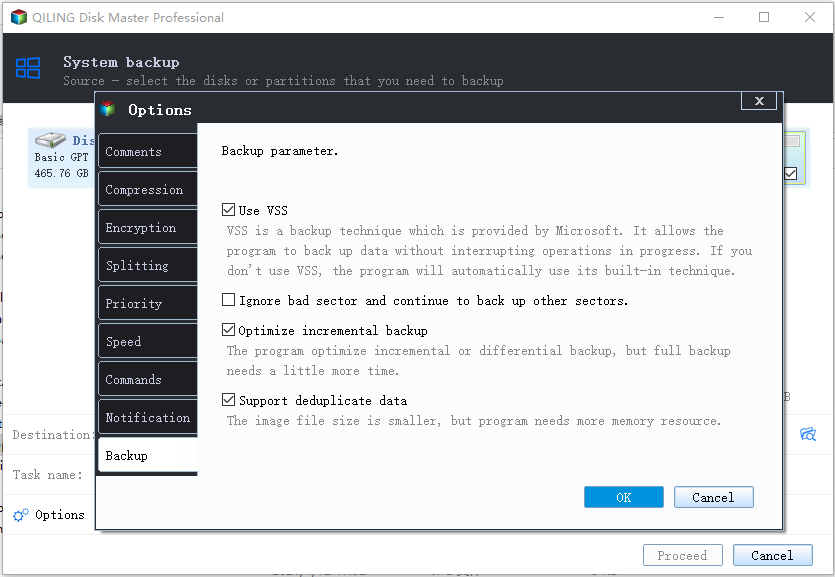
People Also Ask
1. Can a virus infect a backup?
Viruses can still attack your backup unless the backup has proper encryption like Security Zone in Qiling Backup. Moreover, using an antivirus with a backup tool can ensure double security.
2. How do I check for viruses on my hard drive?
You can use Windows Defender on a Windows computer or First Aid on a Mac to find viruses on your disk. Furthermore, you can use Qiling Backup on both Mac and Windows to create a backup.
Conclusion
Hope this explains why you need both antivirus and backups. Not only will it provide double security, but it will also ensure that your encrypted backup is secure as well. Let's download Qiling Backup to give your data double protection.
Related Articles
- Exclusive Tips for How to Reset Lenovo/HP/Acer Laptop
- How to Delete Old Backup Files in Windows 10
- [PC & Android] How to Backup to Cloud with 3 Methods
- An Ultimate Guide: How to Use Backup and Restore in Windows 7/10